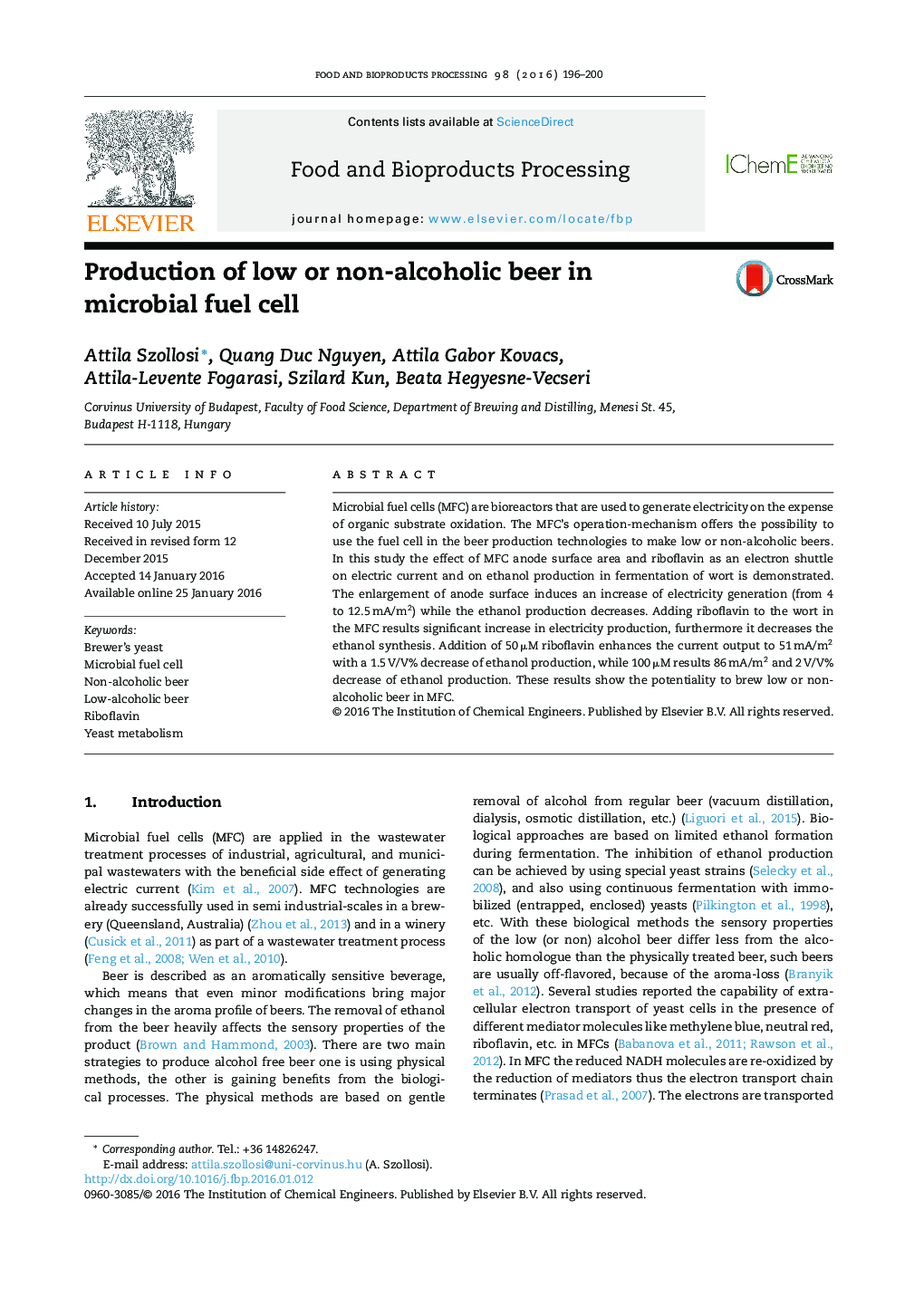| Article ID | Journal | Published Year | Pages | File Type |
|---|---|---|---|---|
| 18871 | Food and Bioproducts Processing | 2016 | 5 Pages |
•Brewing of beer in microbial fuel cell.•Effect of anode surface on current production.•Effect of anode surface on ethanol production.•Effect of riboflavin on current production.•Effect of riboflavin on ethanol production.
Microbial fuel cells (MFC) are bioreactors that are used to generate electricity on the expense of organic substrate oxidation. The MFC's operation-mechanism offers the possibility to use the fuel cell in the beer production technologies to make low or non-alcoholic beers. In this study the effect of MFC anode surface area and riboflavin as an electron shuttle on electric current and on ethanol production in fermentation of wort is demonstrated. The enlargement of anode surface induces an increase of electricity generation (from 4 to 12.5 mA/m2) while the ethanol production decreases. Adding riboflavin to the wort in the MFC results significant increase in electricity production, furthermore it decreases the ethanol synthesis. Addition of 50 μM riboflavin enhances the current output to 51 mA/m2 with a 1.5 V/V% decrease of ethanol production, while 100 μM results 86 mA/m2 and 2 V/V% decrease of ethanol production. These results show the potentiality to brew low or non-alcoholic beer in MFC.
